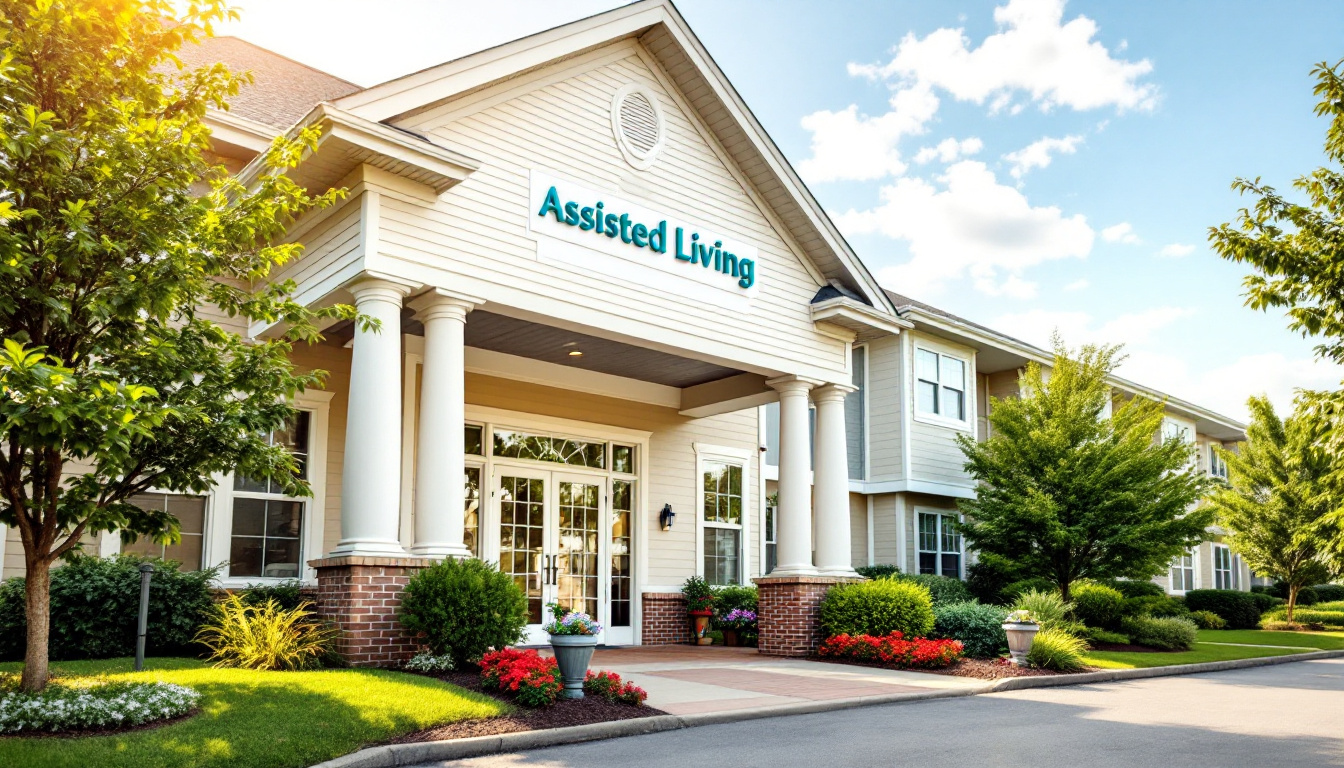The Emotional Challenges of Moving a Loved One to Senior Care
Navigating Heartfelt Transitions: Embracing the Emotional Journey of Senior Care Placement

Understanding the Emotional Landscape of Moving a Loved One into Senior Care
Making the decision to move a loved one into senior care is a profound act of love that can evoke a complex mix of emotions. Families often grapple with guilt, sadness, frustration, and anxiety, recognizing that these feelings are a natural part of such a significant life change. This article delves into the emotional challenges faced by families and seniors during this transition, explores coping strategies, and offers guidance on navigating these intertwined emotional journeys with compassion and resilience.
The Emotional Toll on Families and Caregivers
Placing a loved one in senior care can be one of the most emotionally taxing decisions a family faces. Many caregivers and family members grapple with intense feelings of guilt, sadness, and frustration. These emotions often stem from societal expectations, promises made to loved ones, and fears about losing control over their family member’s well-being.
In addition to these feelings, physical symptoms such as exhaustion, irritability, trouble sleeping, and even health issues may surface. The emotional strain of caregiving can lead to burnout and compassion fatigue, which threaten both mental and physical health. It’s common for caregivers to experience social withdrawal, feeling isolated as they navigate complex emotions.
The risks associated with prolonged emotional and physical stress include depression, anxiety, and a diminished capacity to provide effective care. Recognizing these challenges early is crucial. Seeking support from friends, family, or professional counseling can help caregivers manage their emotional health. Participating in support groups offers community and understanding, easing feelings of helplessness.
Patience, self-care, and accepting help are essential strategies to cope with the overwhelming aspects of caregiving. Maintaining regular communication with loved ones and professional health providers helps manage emotional stress. Ultimately, acknowledging these feelings as normal and manageable is an important step toward resilience.
| Emotional Challenges | Physical Symptoms | Risk of Burnout |
|---|---|---|
| Guilt, sadness, frustration | Exhaustion | Depression |
| Anxiety, loneliness | Sleep disturbances | Anxiety |
| Regret, grief | Irritability, health issues | Compassion fatigue |
| Loss of social connection | Physical fatigue | Emotional exhaustion |
Understanding and addressing these emotional challenges ensures caregivers can better support their loved ones while also taking care of their own well-being. Such balance is vital to sustain the caregiving journey and improve overall emotional health.
Recognizing When It’s Time for Senior Care: Signs and Emotional Considerations

What signs indicate that a loved one may need senior care, and what emotional considerations are involved in this decision?
Deciding to move a loved one into assisted living or other senior care options often comes after observing certain physical and emotional signs. Notably, declines in physical health such as unexplained weight loss, difficulties with mobility, frequent falls, or trouble managing personal hygiene highlight the need for additional support. Cognitive changes, including increased forgetfulness, confusion, and withdrawal from social activities, also serve as important indicators.
Emotionally, it’s common to see signs of loneliness, irritability, depression, or anxiety. These emotional responses reflect the senior’s adjustment struggles and their need for social engagement, routine, and care. Moreover, caregivers often experience stress, fatigue, or safety concerns that underscore the importance of professional assistance.
Emotional considerations play a crucial role in this decision. Approaching it with compassion, respect, and open communication helps reduce feelings of loss or abandonment. Recognizing the senior’s desire for independence, while addressing their loneliness or fear of losing control, supports a smoother transition. Careful planning, involving the elder in the decision-making process, and ensuring they feel supported throughout can make this difficult choice a step toward safety and improved quality of life.
Monitoring these signs and considering both physical and emotional factors ensures that families make informed, respectful decisions that prioritize their loved ones' well-being.
Preparing for a Smooth and Compassionate Transition
How can families ease the emotional burden associated with relocating an older adult to assisted living or senior housing?
Moving a loved one into assisted living or senior housing can be emotionally challenging for families and the seniors themselves. To make this transition smoother, families should prioritize compassionate communication and involve the senior in planning.
Starting with open and honest conversations about the move helps address fears and uncertainties. Including the older adult in decision-making—such as touring potential facilities, choosing personal belongings, and organizing the move—helps them feel empowered and in control.
Personalizing the new space with familiar items like photos, favorite furniture, or cherished mementos creates a cozy environment that can ease feelings of loss and homesickness.
Maintaining frequent contact through visits, calls, or video chats supports ongoing emotional bonds. Participation in social activities and community events within the residence encourages social integration and builds new connections.
Practical matters such as financial planning, downsizing, and discussing the move well in advance help reduce stress and avoid last-minute surprises. Reassuring the senior that this decision is rooted in love and concern, rather than abandonment, can alleviate guilt and promote acceptance.
Overall, approaching the process with patience, empathy, and respect fosters a sense of security and helps both families and seniors navigate this significant life change with compassion.
Understanding Transfer Trauma and Its Impact

What is transfer trauma, and how can it affect seniors emotionally during relocation?
Transfer trauma, also called relocation stress syndrome, is a common emotional and physical response in seniors who move to new living environments like assisted living or nursing homes. It can significantly affect their mental health and overall well-being.
This syndrome manifests through various symptoms, including anxiety, confusion, depression, irritability, and behavioral disturbances. Seniors may feel hopeless, withdraw from social interactions, or exhibit agitation and restlessness. Physically, they might experience loss of appetite, gastrointestinal issues, and an increased risk of falls.
Particularly vulnerable are seniors with cognitive impairments such as dementia, as well as those with little familiarity or control over their new environment. These individuals often struggle with significant distress, which can worsen their cognitive functioning and lead to a decline in physical health.
Effects of transfer trauma are not limited to emotional reactions. It can result in deeper depression, social distancing, and even physical deterioration if not properly managed. To lessen its impact, caregivers and families should involve seniors in decision-making, offer ongoing emotional support, and try to keep familiar routines and environments. Good communication and thoughtful planning during the move are essential to helping seniors adapt and maintain their quality of life.
Support Systems and Resources for Caregivers and Families
 Caring for an elderly loved one during the transition to assisted living or other senior care options can be emotionally taxing for families. To help manage these challenges, there are numerous resources and support systems available.
Caring for an elderly loved one during the transition to assisted living or other senior care options can be emotionally taxing for families. To help manage these challenges, there are numerous resources and support systems available.
Support groups, both local and online, provide caregivers with a platform to share experiences, seek advice, and find emotional comfort. These groups can reduce feelings of isolation and foster a sense of community during difficult times.
Counseling services and psycho-educational programs are also valuable. They assist caregivers in coping with feelings of grief, guilt, and stress, offering guidance to navigate complex emotions and develop resilience.
Educational resources on caregiving techniques, medication management, and behavioral issues can empower families, alleviating some of the anxiety associated with caregiving responsibilities. Skills training programs are often available through local agencies or online courses.
Practical support can be found in community-based services such as respite care, which provides temporary relief for primary caregivers, and adult day programs that offer social and recreational activities for seniors. These services help caregivers recharge and maintain their well-being.
Technology plays an increasingly vital role in caregiver support. Telehealth platforms allow families to consult with healthcare professionals remotely, whereas mobile apps can serve as tools for medication reminders, health tracking, and connecting caregivers with peer networks.
In summary, an array of resources—from emotional support groups to practical community services and innovative technology—exists to assist caregivers during the emotional demanding process of transitioning their loved ones into senior care. Accessing these resources can make the journey more manageable and improve outcomes for both seniors and their families.
| Resource Type | Examples | Benefits |
|---|---|---|
| Support Groups | Local and online caregiver support forums | Emotional support, shared experience |
| Counseling & Psycho-education | Licensed therapists, local mental health programs | Stress reduction, coping skills |
| Community Services | Respite care, adult day programs | Practical relief, social interaction |
| Technology Tools | Telehealth, caregiving apps | Easy access to healthcare, peer connection |
For families seeking further assistance, searching with terms like "Caregiver support resources senior care" can lead to local programs, online communities, and professional services tailored to their needs.
Supporting Emotional Well-being Through Compassionate Care
The journey of moving a loved one into senior care is undeniably complex and emotionally taxing. Recognizing the natural feelings of guilt, sadness, and uncertainty is the first step toward addressing them constructively. Through open communication, involving seniors in decision-making, and providing personalized, supportive environments, families can ease transitional stress and foster positive emotional outcomes. Access to resources such as support groups, counseling, and community services can bolster caregivers' resilience, ensuring they can uphold their loved ones' dignity and happiness. By embracing empathy, patience, and understanding, families can navigate this challenging life stage with love and compassion, turning it into an opportunity for strengthened bonds and renewed hope.
References
- The Guilt Factor: Coping When Moving a Parent
- Navigating the Emotional Challenges of Moving to Assisted Living
- The Emotional Toll of Moving Your Elderly Parent to Senior Living
- I'm having a really difficult time dealing with the emotions I'm feeling ...
- Senior Care And The Emotional Journey Of Moving A Loved One ...
- The Emotional Challenges of Relocating - SDSU Extension
- The Emotional Challenges of Putting Your Senior Parent in a ...





































































































